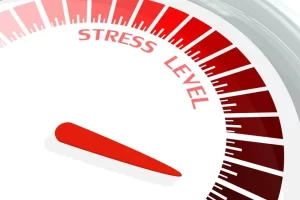 In today’s fast-paced and demanding world, stress has become an all too common companion. It affects individuals of all ages, backgrounds, and professions. However, the good news is that stress can be reduced effectively by implementing stress management techniques.
In today’s fast-paced and demanding world, stress has become an all too common companion. It affects individuals of all ages, backgrounds, and professions. However, the good news is that stress can be reduced effectively by implementing stress management techniques.
In this article, we will explore some proven strategies for stress management, helping you regain control and find peace of mind.
Understanding Stress
Before delving into stress management techniques, it is essential to grasp the nature of stress and its impact on our well-being. Stress is the body’s natural response to demanding situations or perceived threats. While a certain level of stress can be motivating, excessive or prolonged stress can have detrimental effects on our physical and mental health.
Identify Stress Triggers
The first step towards effective stress management is to identify the triggers that cause stress in your life. Common stressors may include work pressure, relationship issues, financial concerns, or health problems. Reflect on the situations that make you feel overwhelmed, anxious, or irritable. By recognizing these triggers, you can take proactive steps to reduce their impact on your well-being.
Adopt a Healthy Lifestyle
Maintaining a healthy lifestyle plays a vital role in managing stress. Here are some key areas to focus on:
- Regular Exercise: Engaging in physical activity releases endorphins, which are natural mood boosters. Incorporate activities like walking, jogging, yoga, or dancing into your routine. Aim for at least 30 minutes of exercise per day.
- Balanced Diet: Nourish your body with a balanced diet consisting of fruits, vegetables, whole grains, lean proteins, and healthy fats. Avoid excessive consumption of caffeine, sugary foods, and processed snacks, as they can exacerbate stress.
- Sufficient Sleep: Ensure you get an adequate amount of sleep each night. Create a soothing bedtime routine, limit electronic device usage before bed, and create a comfortable sleeping environment to promote restful sleep.
Practice Stress-Relief Techniques
To effectively manage stress, incorporate the following techniques into your daily routine:
- Deep Breathing: Take slow, deep breaths in through your nose and exhale slowly through your mouth. Deep breathing activates the body’s relaxation response, reducing stress and promoting a sense of calm.
- Meditation and Mindfulness: Engage in meditation or mindfulness practices to cultivate a calm and focused mind. These techniques help you stay present, manage racing thoughts, and develop resilience in the face of stress.
- Time Management: Prioritize tasks, set realistic goals, and establish a schedule to manage your time effectively. Break down large tasks into smaller, manageable steps, and avoid procrastination to reduce stress levels.
Seek Support and Maintain Healthy Relationships
Building a strong support network and maintaining healthy relationships is vital for stress management. Reach out to family, friends, or support groups to share your feelings and concerns. Surround yourself with positive and supportive individuals who can offer guidance and understanding.
Engage in Stress-Relieving Activities
Take time for activities that bring you joy and relaxation. Engage in hobbies, such as painting, gardening, playing an instrument, or reading. These activities divert your mind from stressors and promote a sense of fulfillment and happiness.
Stress is an inevitable part of life, but with the right techniques and mindset, it can be effectively managed. By understanding stress triggers, adopting a healthy lifestyle, practicing stress-relief techniques, seeking support, and engaging in activities that bring joy, you can regain control and reclaim your peace of mind. Prioritize your well-being and remember that self-care is a powerful tool in managing stress.
Picture Credit: VistaCreate
